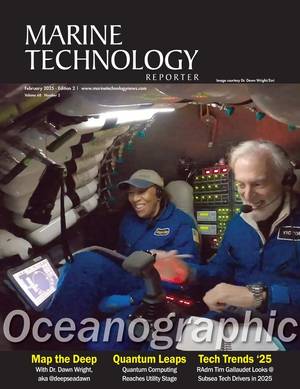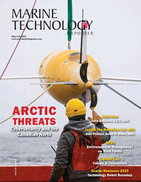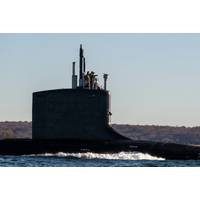
General Dynamics Electric Boat Awarded $1.85 billion Contract Modification For Submarine Production
. This modification is for long lead time material and preliminary construction efforts for submarine production, as detailed in the June 26 U.S. Department of Defense contract award announcement.“This contract modification allows for the acquisition of critical material and components for Virginia-class submarines that require substantial lead time to manufacture and deliver. It sends a continued demand signal, supporting supplier investment in the capacity and materials needed to achieve our required production volume,” said Mark Rayha, president of General Dynamics Electric Boat.
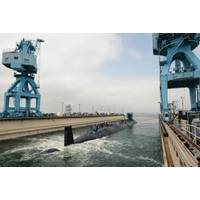
HII Launches Virginia-class Submarine Arkansas
HII announced that Virginia-class submarine Arkansas (SSN 800) was recently launched into the James River at the company’s Newport News Shipbuilding (NNS) division.Shipbuilders transferred the submarine from a construction facility to the floating dry dock, where it was launched and moved by tugboats to a submarine pier at the shipyard for final outfitting, testing and crew certification.The ship’s sponsors are the six women of the historic group known as the Little Rock Nine, the first African American students to attend all-white Central High School in Little Rock, Arkansas, during
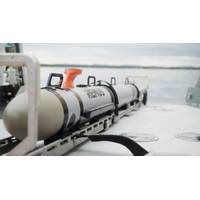
HII Announces Hitachi Order for REMUS 300 SUUVs
with several nations worldwide and offers critical interoperability with partner and allied forces.The REMUS UUV family delivers critical advantages across modern naval operations and the autonomous systems have been proven to operate independently or in conjunction with crewed platforms—such as Virginia-class nuclear submarines—to extend mission range, reduce detection risk and limit personnel exposure.The REMUS open-architecture design allows rapid payload integration, enabling mission-specific configurations and future tech insertions—key factors in maintaining operational relevance

Oceans Protection Treaty Could Take effect from January
$175 billion is needed for marine protection.The last U.N. oceans summit was held in Lisbon and co-hosted by Kenya in 2022. The next, co-hosted by Chile and Korea, is set for 2028.(Reuters - Reporting by Manuel Ausloos and Clotaire Achi in Nice, Benoit van Overstraeten and Geert De Clercq in Paris, Virginia Furness in London; Writing by Richard Lough and Geert De Clercq; Editing by Hugh Lawson and Aurora Ellis) (Additional reporting by Virginia Furness, Editing by Katy Daigle and Hugh Lawson

Kraken Robotics Appoints Kristin Robertson to Board of Directors
Kristin Robertson has been appointed to the Company’s Board of Directors. Robertson, formerly of Boeing and RTX Corporation, is an experienced executive with more than 30 years of managing complex portfolios at top U.S. defense companies. She is currently President and owner of KBR Insights, a Virginia-based strategic consulting firm focused on operational excellence, strategy, and growth in the aerospace and defense sector.Robertson has extensive knowledge of disruptive technology, digital practices, and methodologies applied across the lifecycle of defense, space, intelligence, and commercial
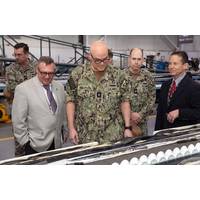
Undersea Warfighting Development Center Leadership Visits NUWC Division Newport
ship range and detection—and advanced development and handling systems.The tour concluded with a briefing on the latest updates from the Yellow Moray Autonomous Undersea Vehicle (AUV) Program, a submarine system that enables the launch and recovery of specially configured REMUS 600-based AUVs from Virginia-class torpedo tubes
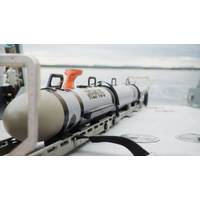
HII Delivers Initial Lionfish UUVs to U.S. Navy
, surveillance, and reconnaissance (ISR), anti-submarine warfare, and electronic warfare.The REMUS UUV family delivers critical advantages across modern naval operations and the autonomous systems have been proven to operate independently or in conjunction with crewed platforms — such as Virginia-class nuclear submarines — to extend mission range, reduce detection risk and limit personnel exposure.The REMUS open-architecture design allows rapid payload integration, enabling mission-specific configurations and future tech insertions — key factors in maintaining operational relevance
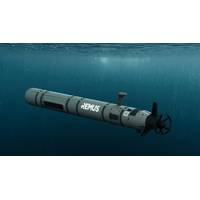
HII Sells Over 700 REMUS Uncrewed Underwater Vehicles
family delivers critical advantages across modern naval operations, including intelligence, surveillance, and reconnaissance (ISR), mine countermeasures, anti-submarine warfare, and electronic warfare. These autonomous systems can operate independently or be teamed with crewed platforms — such as Virginia-class nuclear submarines — expanding operational reach while reducing detection risk and personnel exposure.More than 700 REMUS UUVs have been sold in over 30 countries, including 14 NATO members.Over 90% of the vehicles delivered in the past 23 years remain operational, demonstrating the
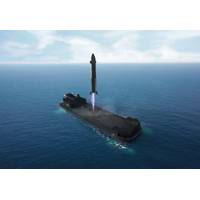
Rocket Lab to Convert Barge for Rocket Landings at Sea
will help to ease that bottleneck, and our new landing platform will open space access even further by enabling even more mission opportunities that require maximum Neutron performance,” said Peter Beck, Rocket Lab Founder and CEO.Rocket Lab currently expects Neutron to make its debut launch from Virginia in the second half of 2025
 February 2025
February 2025
